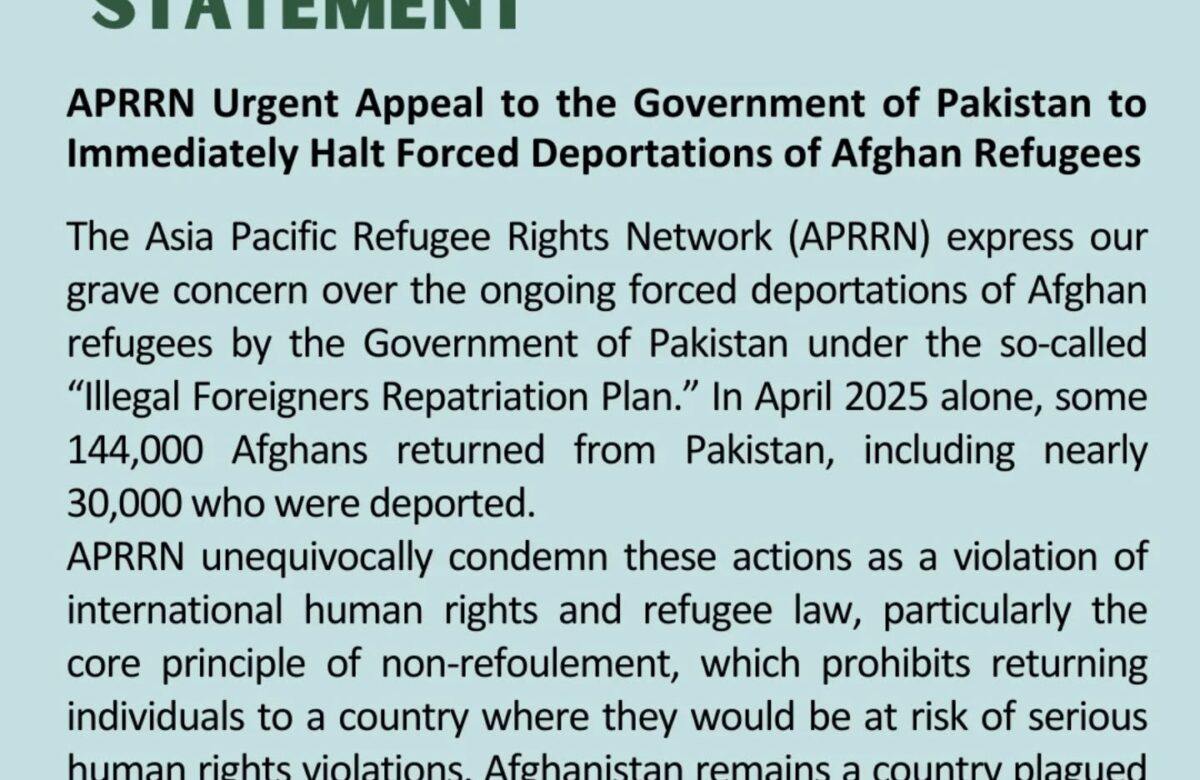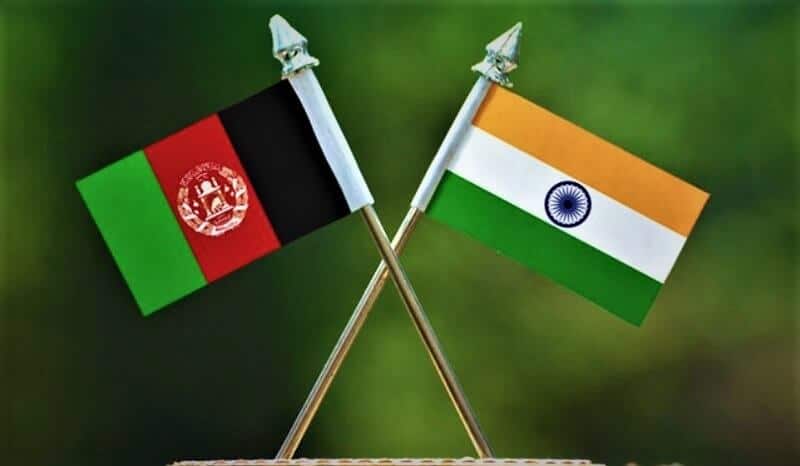
Job Announcement: Consultant for Building a Joint Reference Framework of Constructive Interactions in Afghanistan
Organization
Danish Refugee Council (DRC), Handicap International (HI) and Mercy Corps (MC)
Posting Date
Sep, 2024
Deadline
Sep 23, 2024
Location
All of Afghanistan
Language
Proficiency in English; Dari/Pashto is a plus.
Duration
September 2024 to March 2025
Background information Aid workers in Afghanistan face numerous hurdles, including increasing bureaucratic restrictions, various national and international political pressures, and other obstacles which are exacerbating needs and challenging principled action. The national regulatory frameworks are highly restrictive and create obstacles to principled programming. Donor restrictions (real or perceived), have led to constraining policies which have put pressure on aid actors’ humanitarian space. Aid actors also self-censor or apply a conservative interpretation of what donors are willing to tolerate, without necessarily feeling empowered to request clarifications. Many aid implementers are lacking clarity on what is acceptable considering legal frameworks and international norms to allow for principled interactions with the authorities. Safeguarding and, where possible, expanding NGO operating space, requires operational clarity on how to navigate restrictions, whether coming from the authorities, donors or member states. Despite some improvements observed throughout 2023 in terms of increased principled technical engagement with the authorities, restrictions remain challenging to navigate. Such challenges and disagreements around acceptable avenues for interaction with the authorities often lead to a lack of coherence in aid actors’ engagement practices with authorities, which in turn undermines trust and results in greater interference attempts. At the same time, high levels of scrutiny from donors and various actors outside of Afghanistan on aid actors’ interactions with the authorities increase bureaucratic impediments (including various levels of restrictions, multiple reports and lengthy requests for approvals) and disempower aid actors on the ground. There is a growing literature on engagement in ‘politically estranged’ settings. The output from this consultancy would provide guidance on how to operationalize some forms of principled engagement that would be necessary for aid actors to enhance principled delivery of assistance. The consultancy will rely on available policies and frameworks, such as the donor complementary principles and considerations for ACG donors support to Basic Needs and Livelihoods in Afghanistan, as well as make sure to factor in ongoing complementary work being led by the ACG and its members, OCHA, as well as other actors such as research institutes. | |
Purpose of the research and intended use The overall objective of this consultancy is to identify an interaction reference framework between aid actors and the Afghan authorities with the aim to strengthen NGO operating space and promote the delivery of aid in an effective and principled way. To achieve that, the consultancy will create space for dialogue between all actors involved in the principled delivery of assistance in Afghanistan and identify which interactions are necessary and acceptable between aid actors and the Afghan authorities. The consultancy will provide clarity on the national and international regulatory frameworks, including legal restrictions, as well as current donor positions, depoliticizing further the aid response. It would serve as an operational guidance on constructive interaction modalities with authorities in order to increase coherence in aid actors’ engagement with the authorities and to therefore enhance principled delivery of humanitarian and basic needs activities in a politically estranged setting such as Afghanistan. The purpose of this reference framework is to serve all operational aid actors in the response. To this end, the final product may be handed over, in part or in full, and upon endorsement from the Steering Committee, to a coordination body within the response, e.g. HAWG, HCT, ACBAR. This would ensure the tool remains relevant and operational for all actors. | |
Scope of work and preliminary methodology The full methodology for this exercise would be developed with a selected consultant / consultancy team. A desk review complemented by a qualitative and participatory approach mixing in-depth key informant interviews and workshops with key stakeholders is proposed. A preliminary outline of the analytical steps and proposed outputs would be:
Throughout this consultancy, a step-by-step approach will be adopted to ensure continued adaptation to the contextual changes and developments, as well as follow the recommendations and guidance from its governance body (see below section on Governance modality). | |
Research, Follow up and Learning The preliminary findings of each deliverable will be presented to the Technical Committee for feedback and inputs before final review and endorsement by the Steering Committee. In addition, working sessions with both committees will be conducted to review each deliverable report. Research Principles The views expressed in the reports and reference framework shall be based on the independent and professional opinion of the consultant, grounded in the outcomes of the data collection and analysis conducted. The research should be conducted in a transparent and independent manner. The research will be guided by the following ethical considerations:
Follow-Up and dissemination The dissemination of the final product shall include, at minimum:
The research team would be required to attend such events, to share findings, experiences etc. | |
Coordination and management External coordination:
Governing modality
The consultant will be led by a Steering Committee. The Steering Committee members will be invited to a kick-off meeting with the selected consultant to review and finalize the research lines of inquiry prior to the start of data collection. The steering committee will make decisions based on the majority, not based on consensus building, to ensure the committee can drive decisions and be valuable contributors to the research. The Steering Committee comprised of UN, civil society representatives and donors will oversee the administration and overall coordination, including monitoring progress of the research.
The consultant will be supported by a Technical Committee; this committee will provide technical expertise and guidance on principled delivery of assistance and principled engagement with authorities. This group will oversee the technical content and monitor the progress of the research, including assessment of risks and support in updating mitigation measures as required. | |
Deliverables and Reporting Deadlines The research consultant or team will agree with the lead organisation on a timetable of deliverables for the research period, such that the data and observations collected can be instrumentalized in real time in appropriate in-country forums. Ultimately, the research team will submit five reports and a presentation deck. As well as at least four in country presentations, and one international invite only presentation; the deadlines are to be agreed with the consultant.
All material collected in the undertaking of the research process shall be submitted to the Chairs of the Technical and Steering Committees prior to the termination of the contract. The language used for the deliverables will be English. | |
Timeframe and Budget Proposals submitted should present a budget for the number of expected working days over the entire period of the research including the development of inception report, tools, planning and conducting fieldwork, analysis, reporting and presentations. The total budget will be analysed based on timeline, deliverables and workplan. The researcher/ team lead is expected to provide a suggested timeline and work plan for the Research based on these scheduling parameters and in keeping with the scope of the scope of work and suggested methodology. Considering the complicated issue of engagement in Afghanistan, this factor should be kept in mind for the proposal, but an understandable level of flexibility will be provided to researchers based on this. In event of serious problems or delays, the researcher/ team leader should inform the Steering Committee immediately. Any significant changes to review timetables need to be approved by the Steering Committee in advance. | |
Experience and technical competencies:
Behavioural competencies:
| |
For the proposal, please submit: 1. Technical Proposal (no more than six pages) outlining how the consultant or consultancy company will undertake the project, including
| |
Evaluation of Consultants
A bid shall pass the administrative evaluation stage before being considered for technical and financial evaluation. Bids that are deemed administratively non-compliant will be rejected. Documents listed above must be submitted with the bid. The evaluation committee will be comprised of representatives of the 3 lead NGOs of this consultancy: DRC, HI and Mercy Corps.
Technical/Finance proportion: 75/25 Minimum passing technical score 50 SUBMISSION Proposals must be submitted to a.rasuly@hi.org with the email subject line “Building a Joint Reference Framework.” The submission deadline is September 23, 2024, based on Kabul date and time. INFORMATION Consultants may request clarification on any part of the TOR. Please send any clarification requests by email to a.rasuly@hi.org and manon.radosta@drc.ngo with the subject line “Building a Joint Reference Framework Consultant Enquiry” no later than September 13, 2024. |
- Tags
- Oceania



